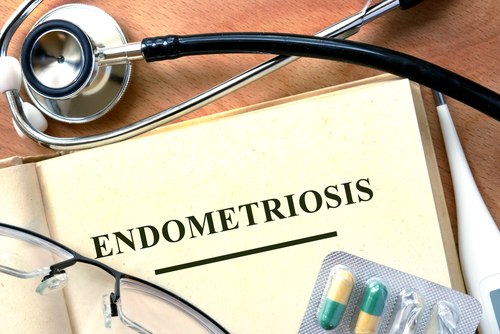Endometriosis is associated with decreased sexual function in women, a new literature review concludes. Fear and anticipation of pain also inhibit sexual response, decrease self-esteem, and potentially impact a couple’s relationship.
The study, “What Is Known and Unknown About the Association Between Endometriosis and Sexual Functioning: A Systematic Review of the Literature,” appeared in the journal Reproductive Sciences.
The association between endometriosis and painful sexual intercourse, or dyspareunia, is well–known and may affect at least 2% to 4% of all sexually active women. This problem often leads to sexual dysfunctions, including low sexual desire and impaired lubrication, arousal, and orgasm.
To draw more attention to endometriosis’ impact on women’s quality of life, a research team led by Giussy Barbara, MD, from the Department of Women’s and Children’s Health, Service for Sexual and Domestic Violence, Fondazione IRCCS Ca’ Granda Ospedale Maggiore Policlinico, in Milan, Italy, reviewed literature about endometriosis, particularly deep infiltrating endometriosis (DIE), and its effect on women’s sexual function.
The authors identified nine studies published between 2000 and 2016 that fit review criteria. The analysis excluded articles addressing the effects of surgical or pharmacological treatment for endometriosis.
The overall sample included 1,158 women diagnosed with endometriosis. In a study of 125 women with endometriosis and pain during sexual intercourse lasting for at least six months, sexual dysfunctions and sexual distress were found in 32% and 78% of subjects, respectively. Sexual dysfunctions were associated with guilt toward a partner and a decreased sense of femininity.
Another study revealed that pain during intercourse and vaginal nodules were significantly associated with poorer sexual function, affecting satisfaction and orgasm. A total of 61.5% of patients with DIE indicated a low frequency of sexual intercourse. Five studies demonstrated lower sexual function in women with endometriosis compared to healthy women or women without endometriosis. This was also observed in a study comparing women with chronic pelvic pain with or without endometriosis versus healthy controls.
The authors further analyzed one study evaluating sexual function in patients with endometriosis and in their partners. No differences were found between male partners of women with endometriosis and those of healthy women.
“The estimated high prevalence of endometriosis-related sexual dysfunctions (about two-thirds of women with endometriosis) is particularly alarming,” the authors wrote. However, they suggest that this high percentage may be due “to the fact that most of the studies were conducted in patients with DIE or in women having pain at intercourse caused by endometriosis.”
The analysis also draws attention to the fact that sexual dysfunction in women with endometriosis is not limited to painful intercourse. This suggests that the sexual impact of endometriosis requires further study, including psychosocial factors and the quality of intimate relationships, including a partner’s sexual function and support.
Given the multidimensional character of endometriosis, “the ideal treatment for endometriosis-related sexual dysfunctions should be conducted by a multidisciplinary team composed of gynecologists, sexologists, and psychologists/psychotherapists,” the authors wrote. Such a comprehensive approach “is particularly felt among women with endometriosis and should be encouraged and implemented in clinical practice.”

